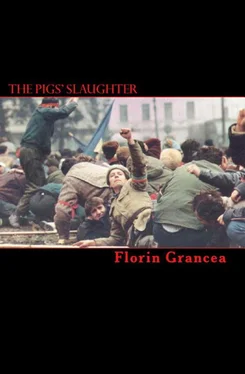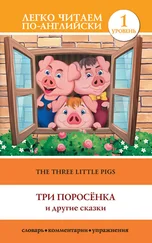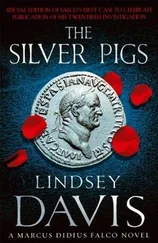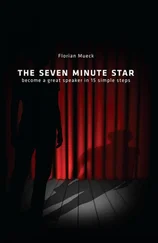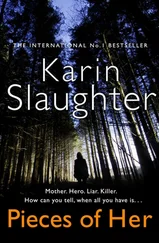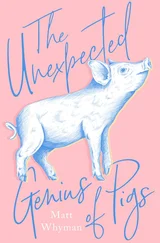So we went to the airport. A rather small one. Smaller than the central train station built by some Japanese companies after the earthquake that flattened Macedonia in the 70’s. Romania had built some flats there, too, after the same earthquake, and I could pick them out quite easily. They were the ugliest in Skopje. Not that they were any uglier than the flats back home.
We got on that plane and it looked nice, it had a saloon, and furniture, but it was no Air Force One, or at least not what we see in American movies. I sat in the back beside a Romanian pilot I had met in Skopje, in that hotel where I could not flush my toilet and nobody cared to clean my room. He, too, was offered a bottle to pour tap water in the toilet after he took a dump. And we were going up and down and up and down and left and then right. And so it went on and on.
“Not a bad landing for a beginner”, said my pilot friend, and after we landed everyone was patting Meleşcanu on the back:
“Well done, Mr. Minister”.
“That was the smoothest landing I ever experienced, your Excellency”.
Before 1989 all we had was Ceauşescu, but it was 1996 and we were free. People still “completed”, when they could, everything they wanted from our motherfuckingland, and Meleşcanu wanted to land a 707. Ceauşescu’s 707…Others wanted more. That was the reason why those 83 kids from Campina had to die quickly, like my pig. Big shots were waiting in line for benefits.
Back in those trucks it was bloody cold. There were twenty soldiers in each one, seated face to face on the two benches in the back of the trucks. You know, you’ve seen that scene hundreds of times in American movies. But the soldiers in the three trucks did not look like those American hotshots. First of all they were all thin. Secondly, they were just kids. Thirdly, they were scared and tired.
It was so bloody cold. The cold that they welcomed at home when smoking sausages. Actually those sausages were on everyone’s mind. In a couple of days, on Christmas Day, their moms would come to visit and they would bring fresh sausages. And white bread. And they would sit down on a bench and wolf if all down while their mothers cried. They would cry at the sight of their babies so thin, so malnourished, so much more men than before they left home.
Only the luckiest would get 24 hours leave, but with the shooting in Bucharest it was pointless believing you had such luck. A couple of soldiers opened their packs of biscuits and started to eat them with cheese. Another thing one does not, cannot, see in American movies. In those movies soldiers eat chocolate and square meals. The 83 from Campina got no chocolate when they got in their trucks, only a pack of army biscuits, made without any butter or vegetable oil and so hard they had to keep them in their mouths for a long time before taking a bite. Then there were the three shapeless pieces of cheese, expired maybe years before that December night in 1989…They had their own water in their canteens, tap water, the coldest tap water in Romania, the very same that washed their uniforms the night before.
They were too young and, as I already said, much like myself, unaware that those biscuits with cheese were about to become their last supper. They sat close to each other to catch each other’s body heat, closing their eyes, some of them going back to sleep.
“You can say you are a soldier only when you are able to sleep while standing and walking”, my father used to tell me, proud indeed that he had served. Years later, I am proud I didn’t. I became a man without serving in the Army, but it happened that way only because of the revolution. Otherwise, I would have had to serve for probably one year in the military. Military training for a couple of months and then, for the rest of the term, working in agriculture, or construction, as was customary those days.
But I didn’t serve because, and it sounds so egotistical, those 83 big children from Campina, and others like them were about to die for me, for us, for nothing.
Death was waiting. Impatiently. The trucks stopped at a checkpoint. It was the Airport security’s first checkpoint. As with all other checkpoints they were let through. A few hundred meters closer to the airport and the trucks had to stop again. Another checkpoint. This time a uniform that survivors would know later as lieutenant-major Ionescu, got in the first truck to show them the way, he claimed. But his orders were to wait there, which he couldn’t anymore. It was cold, so cold, and he wanted to get out of the cold, to have a smoke. So the uniform got in and with a smelly burst the trucks were on the move again and someone dropped his canteen and water was spilling all over and suddenly there was more blood spilling than water, faces missing, the terrible sound of bullets hitting the truck and the even more terrible sound of bullets biting through winter coats, finally dry uniforms…and flesh. 22 soldiers were killed in seconds. Engines died too. Somewhere in the distance machine guns were rattling at them.
Even if you have slaughtered a pig or you watched a pig being slaughtered for you, you still cannot imagine the fresh human blood flowing in that truck. With the pig things are controlled, the blood is collected in a bucket, and the meat, when the pig is opened with a knife, looks more like the meat you see at a butcher’s: it doesn’t bleed.
But not human flesh. I know that because I had to listen many times to Uncle Gheorghe and his war stories. Uncle Gheorghe was my grandmother’s brother-in-law and in WWII he came home only because he was a better killer. Better than those seven Russians and five Germans that he killed with his knife and bare hands.
Uncle Vasile, my grandmother’s brother, was not as tough. As a baker he loved his bread and loved the people who ate it, so he was killed in WWI, by French troops, and he definitely did not fight back. He died like a lamb, my grandmother used to say. She couldn’t use the word “pig”, despite the fact that those Frenchmen who got her brother saw in him not the baker whose bread they would have loved to eat, but a pig wearing an Austrian uniform.
“With pigs it’s easy”, Uncle Gheorghe used to say, “but people die very hard”. “What you see in the movies (and he was referring to the Soviet movies about WWII) is nothing but lies”. “People are not like pigs. You can sometimes put your knife a dozen times into a body and that body will still fight back” he used to warn us, the kids sitting around him. Then he would show us his wounds, his knife wounds, and he would point out which ones he got from Germans and which from Russians, only he could tell them apart.
Years later, Uncle Gheorghe died, but when he did he was still amazed at the news that 22 soldiers were killed almost instantly in those trucks.
“Surely they were hit by dozens of bullets each” he said and he cried. For him that was not the definition of friendly fire, but the definition of a well-organized firing squad. “They were like Ilie”, and Ilie, his son, came back in one piece from his army time, married and had a daughter, unlike those 22 killed suddenly, sprayed with bullets, after their trucks were cleared at the checkpoint.
That morning I woke up at six and got out of my bed quickly to go to the toilet downstairs. At exactly the same time the survivors got out of their trucks and took cover behind them or ran towards the forest.
“Don’t shoot! Stop shooting!” the screams were heard in perfect Romanian. But they were being shot at from three different points in that ambush and if one started to shoot, the others followed suit.
“We surrender!”
“We surrender!”
“We surrender!”
“We surrender!”
“We surrender!”
“We surrender!”
Читать дальше
